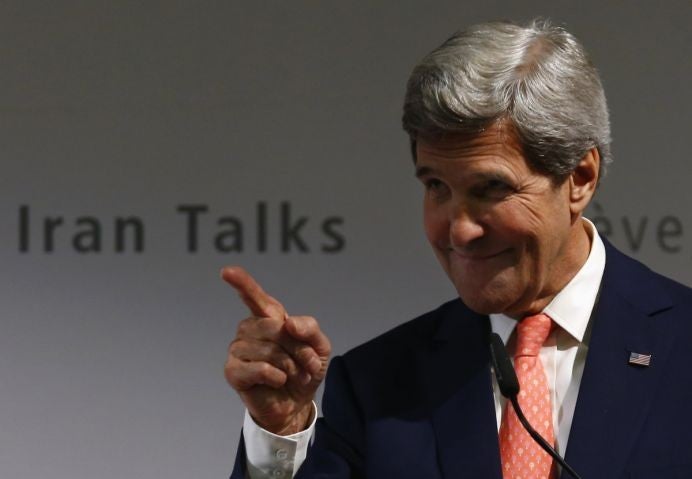John Kerry: Iran is to blame for failure of Geneva nuclear talks
US Secretary of State said major powers, including France, were united in an offer but Iran 'couldn't take it'

US Secretary of State John Kerry has blamed Iran for the failure of negotiations over the country’s nuclear programme in Geneva this weekend, countering claims that talks broke down due to France pushing for tougher terms.
Speaking on Monday in Abu Dhabi, Mr Kerry said that all major powers were agreed on an offer but the Iranians were unable to accept it "at that particular moment".
"The French signed off on it, we signed off on it and everybody agreed it was a fair proposal," Kerry said. "There was unity but Iran couldn't take it."
Iranian representatives will meet those of the US, UK, France, Russia, China and Germany in Geneva again on 20 November to resume talks.
Following the collapse of talks, Mr Kerry and UK Foreign Secretary William Hague expressed optimism that a deal can be struck in the coming weeks.
A key stumbling block has been Iran's insistence that the international community recognise its "right" to enrich uranium as a signer of a UN treaty governing the spread of nuclear technology.
Iran's current highest enrichment level, at 20 per cent, is far below the more than 90 per cent needed for weapons-grade material, but experts say the process could be done at a rapid pace.
Iran insists that its nuclear program is solely for peaceful purposes and that it has no plans to produce a nuclear weapon.
"This stock at 20 per cent must be dismantled and come back to 5 per cent. The Iranian side still needs to make an effort," French Foreign Minister Laurent Fabius, who told Europe 1 radio.
In a further development on Monday, the UN nuclear watchdog reached an agreement with Iran to expand monitoring of the country's nuclear sites, including at a planned reactor.
Join our commenting forum
Join thought-provoking conversations, follow other Independent readers and see their replies
Comments
Bookmark popover
Removed from bookmarks